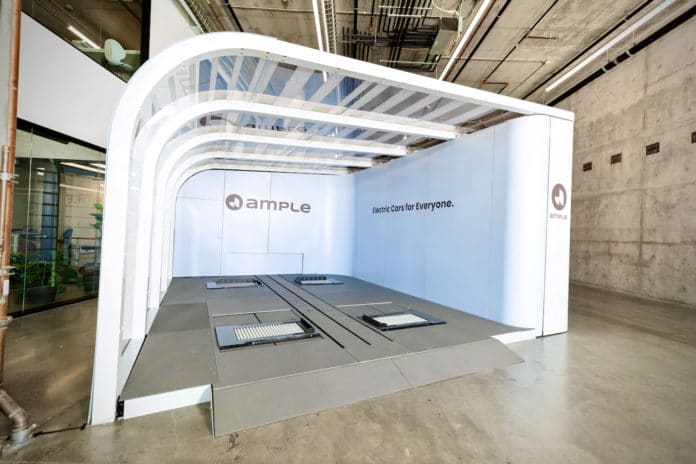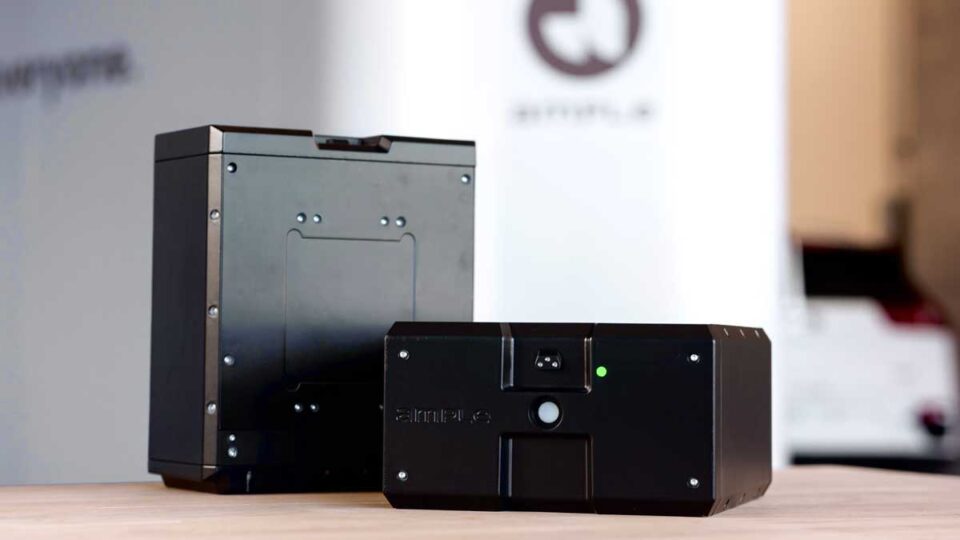One of the obstacles of electric vehicle adoption is the fact that charging an EV takes time, compared to refueling a gas car. However, a startup is hard at work to eliminate one of the last barriers to the proliferation of EVs. If everything goes well, ‘refueling’ your electric car will take less than 10 minutes.
The startup is Ample, based in the storied Silicon Valley. The company is targeting fleet operators and Uber drivers that need to recharge fast as its initial clients. Demo units of the required facilities are already up in multiple sites.
How it works is simple; remove the spent battery from the car and replace it with a fully charge one. The entire process is automated and the driver only drives into the swapping shed or station. The process is touted to take about ten minutes but Ample is promising to cut it down to five before the year runs out.

Observers report that the system actually works as advertised, as a car drives into the station and the driver uses the Ample smartphone app to start the procedure. The car is lifted up and a sliding robot moves under the car. The robot then proceeds to extract the car’s battery packs and slides back into the station recess, where it is issued fully charged packs. The spent ones are automatically connected to charge while the robot returns to insert the fully charged packs into the car.
Ample, formed by ex-Google and ex-Tesla engineers, has been working on this setup for more than seven years and it believes it has a cheaper and faster approach to charging electric vehicles. The batteries are made of modules and can work with any car model. Ample has also designed its station to be easily assembled and as small as possible. It will fit into any space that can park two cars.

The startup is now courting electric vehicle manufacturers to convince them to use battery packs that are compatible with its own modular system.
Other companies have attempted to make battery swapping a thing. Better Place, Nio and Gogoro have all dabbled in this method of recharging electric vehicles but they have had to grapple with the practicalities of such a scheme. For example, any battery involved in such a swap would likely not retain its warranty, which is a selling point for many manufacturers. Drivers also have to be sold on the idea of accepting batteries that are not originally theirs.
Written by D.O. for www.ShargeMe.blog